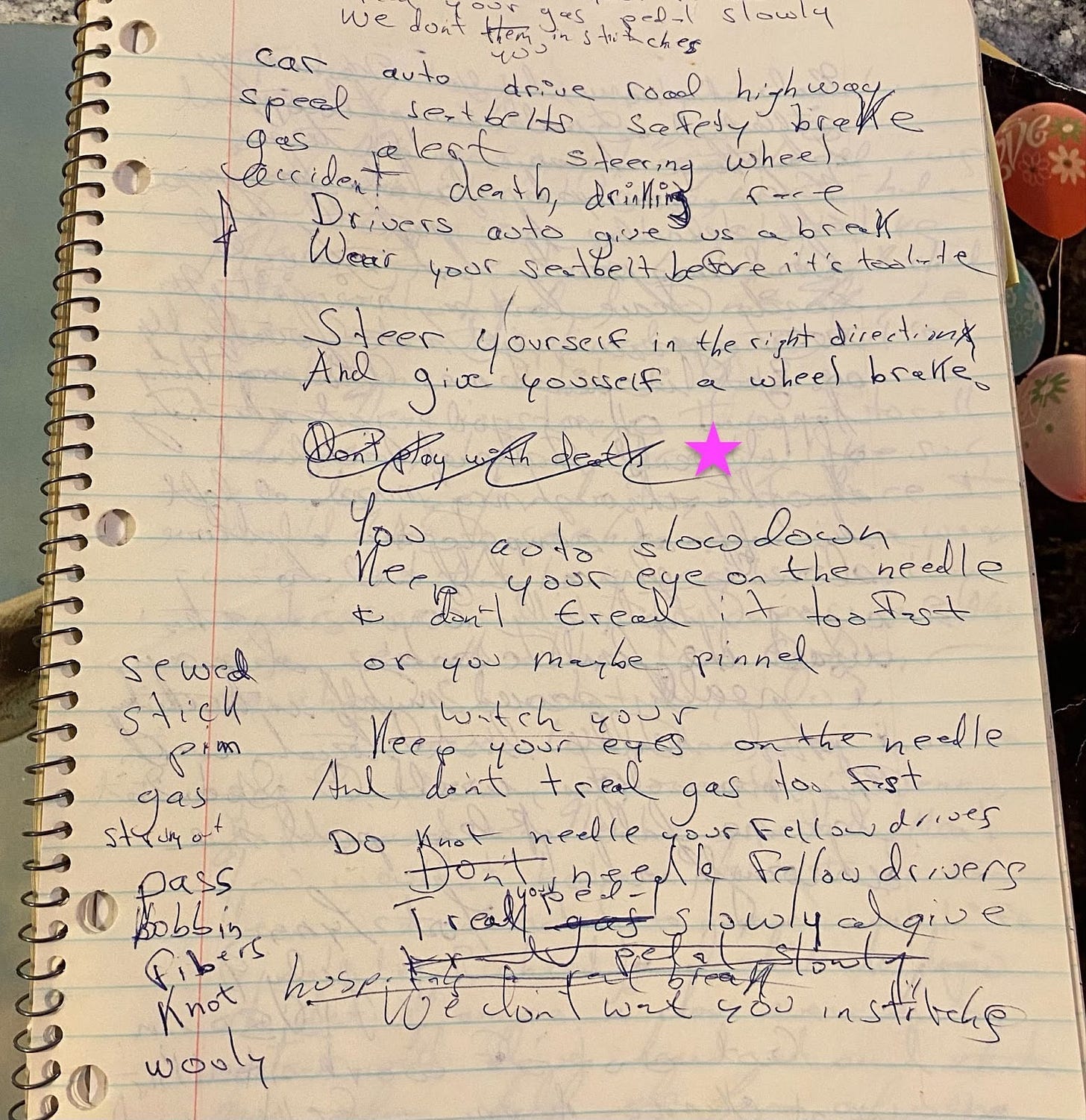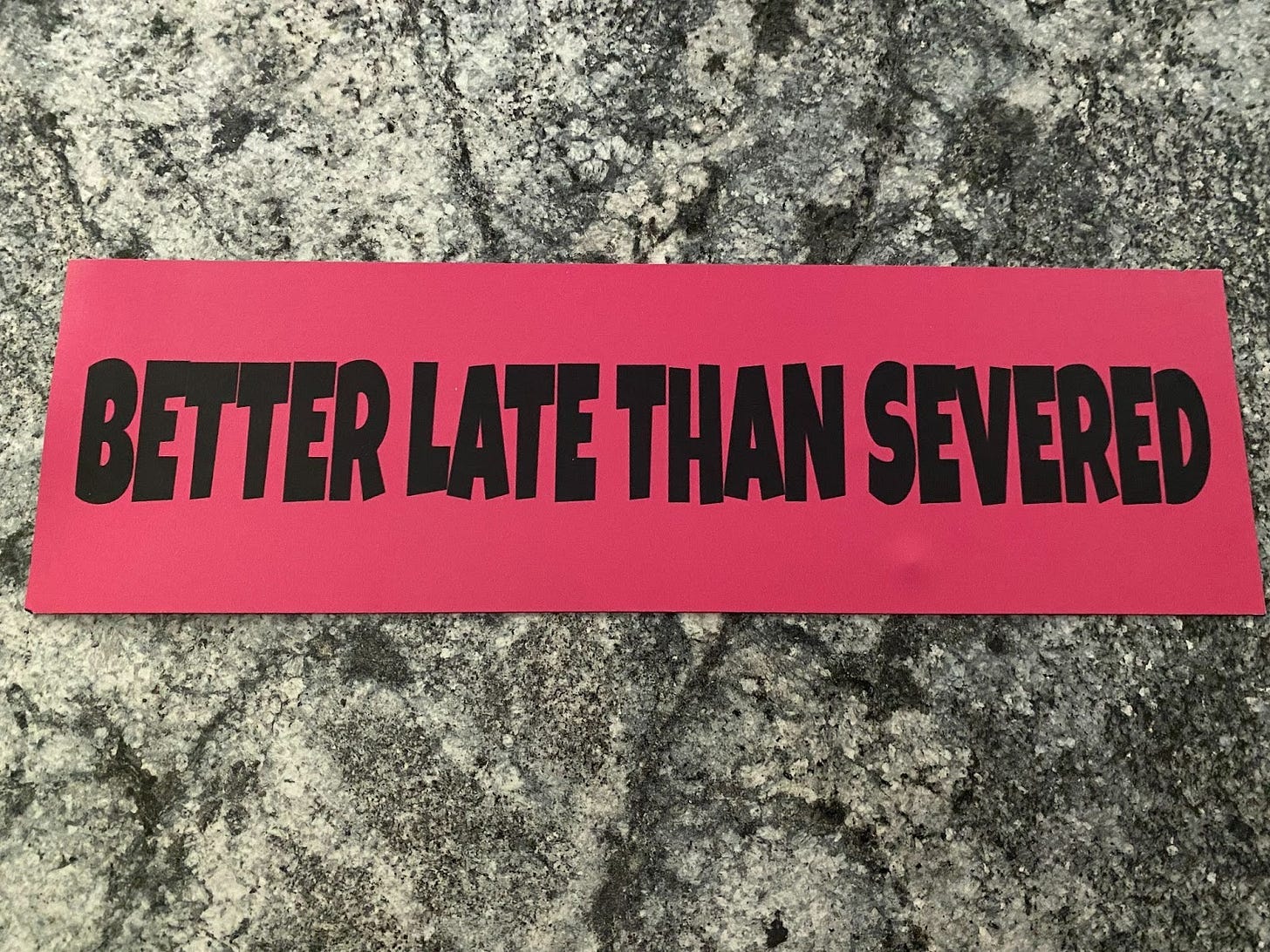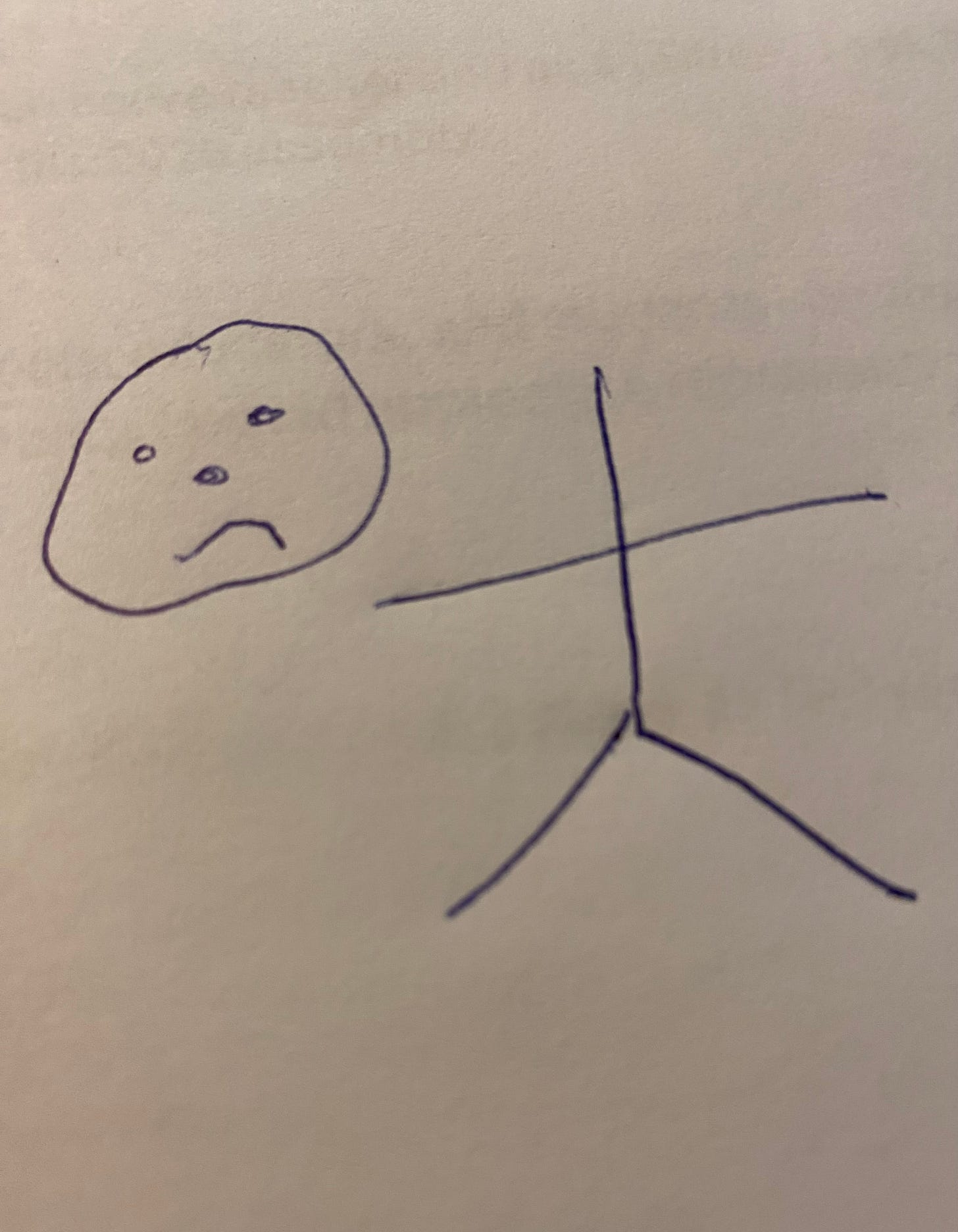One Sunday morning in May, as I cranked up Springsteen and cruised down Interstate 95 somewhere south of Bangor, one of those electronic highway signs pitched on the breakdown lane flashed this message at me:
COWS IN ROADWAY
55 years of Maine driving and not since a country cow in a ditch jogged past my Ford Ranger and sent my then-young daughter and me into hysterics, had I had a bonafide bovine experience.
I shut down Springsteen, took a last swig of my coffee, slowed down (a bit), gripped my steering wheel with both hands, leaned forward and kept one eye peeled to the road while the other was out on cow patrol.
I fully expected to round the next bend and face down a couple of confused cows. I also thought I’d find updated messages along the roadside, perhaps MOOVE OVER or TAKE THE BULL WITH YOUR HORN. Even a simple HOLY COW would have been helpful.
But no. No new messages. I clenched my hands tighter and tried not to have a cow.
A similar thing happened to me a couple of summers ago. I was driving through a congested construction zone on busy Route 302 in Windham, Maine when I glanced to my right and spotted this message:
CHILDREN IN MEDIAN
What the heck?
There was no way kids were hanging out in the middle of Rte 302 in downtown No. Windham, Maine.
Perhaps both messages were simply code for SLOW DOWN, or perhaps — and I like this theory way better — a Department of Transportation (DOT) worker had gone rogue, a theory inspired by the flagger who stopped me in a construction zone, then tapped on my window and asked me to help her change the batteries on her walkie-talkie because her fake fingernails were too long.
The U.S. Federal Highway Administration recently decreed that all states, by 2026, must make changes to their highway messages. No more cultural references. No more laughing. No more fun.
And absolutely no more puns.
Signage, say the Feds, should only share vital information and should be written in a direct, simple, brief and clear style.
Never big on laughs, the Feds claim that clever and lighthearted roadside sayings daze and confuse passers-by.
Newsflash: Maine has the oldest population in the nation. That’s right. Nearly a quarter of us are over 65. We’re already dazed and confused.
I contend these roadside signs activate our brains, keep our blood coursing, and tickle our funny bones. Heck, they even keep us old ones awake behind the wheel.
Perplexing or not, I don’t want these witticisms to go by the wayside. I want them to stay on the roadside.
Because – and I don’t mean to brag – I am an award-winning punster from way back.
True, I may have been one of just two contestants, and I may have been a sorority pledge with no choice in the matter, and the contest may have been ruled a tie, but in October of 1973, my future sorority sisters thought I was so clever, so funny and quick-witted, so capable of besting a frat boy at a word game that they entered me in this pun-off, plus they provided the entry fee: lots of beer. I hate to come off as pompous, but for 60 minutes I held my own in that wordy arena. Plus, in a personal best still unsurpassed, during that pun-filled party, I drank 3 beers and knocked over just one, a now-defunct beverage with a classy name:that sounds like an oversized item you’d find in a young woman’s purse: Maximus Super.
Also, until I read this Down East Magazine piece, I pictured one person at the Department of Transportation – maybe even me — wearing an orange vest and a yellow hard hat and churning out puns and rhymes and funny Maine phrases. But it turns out that this type of high falutin prose takes a village of DOT workers.
Ever Wonder Who Writes The Goofy Maine DOT Road Signs?
My longing to write witticisms harkens back to the summer of '73 when the Maine Highway Safety Advisory Committee launched a slogan contest. Open to Mainers of all ages, the author of the prize-winning slogan would win a brand new Chevy Vega, at the time worth two or three grand.
Car-less and poor and at work, I grabbed my ever-present journal and between ringing up groceries, I scribbled like mad. Here are my initial jottings:
Do not needle your fellow drivers. We don't want you in stitches.
Drivers auto give us a break. Wear your seatbelt before it's too late.
Steer yourself in the right direction and give yourself a wheel break.
Keep your eye on the needle and don't tread it too fast.
(Written While Working As A Cashier At Naples Supermarket: July 8, 1973. Hey, at least I was smart enough to scratch out DON’T PLAY WITH DEATH.)
Out of a whopping 30,000 entries, Daniel Jones, 25, a Vietnam veteran from Lewiston, won with “Your Life Is On the Line.” Beneath his slogan he’d drawn a yellow highway centerline.
Although it wasn’t noted in the official rules, several entrants included artwork with their slogans and some of them earned special certificates for their extra-creative efforts. One woman even embroidered both her slogan and the state seal on a small tablecloth.
This is a revelation to me and it seems patently unfair. Never mind that my drawing skills are worse than my handwriting (see above), had I known that artwork could accompany my submission, my slogan would have sealed the deal and that 1973 Vega would have been all mine. Because — and I swear I’m dead serious — this was my entry:
At least no one reported me to the authorities.
Speaking of authorities, three summers later, in an odd addendum to this odd cattle tale, my friend Pam and I were in a rental Vega, of all cars, and as I was driving along the causeway in Naples, Maine, the Vega’s gears started to grind, making horrendous noises. Startled, I swerved, then slowed way down and the next thing I knew blue lights were flashing and two cops were on either side of the car peering in. One was a guy I’d dated. Luckily he was the one on the passenger side.
“Claudia,” said the officer I’d never kissed, “Why are you driving so slowly and erratically?”
I told him the truth, of course, but in hindsight, maybe I should have uttered three simple words straight from the village at the Maine Department of Transportation:
COWS IN ROADWAY
AFTERWARD
A special thank you to my journal for continuing to provide me with details and hilarity I can use in my stories. Fact-checking your own life from your own words is a really weird experience. (Definitely need to write about this, now that I think about it.)
I had to talk myself out of including the following lines in this tale because I thought they might be over the top.
First, I so much wanted to slip in this line near the pun contest description:
“If I lived in Hermon, Maine, I’d be a Hermon Punster.”
And if you don’t get that line, I’m sure glad I didn’t include it.
Second, in the last line of the piece, I really, really wanted to write “maybe I should have uddered three little words….” but I thought you might think I’m dazed and confused or something.
Third, all kidding aside, head I included artwork with my slogan submission, this would have been the best I could have done.
.
The End.
In more ways than one.







